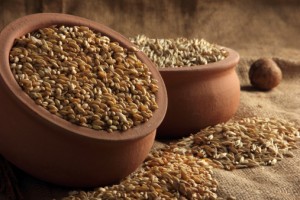It seems everyone is talking about gluten these days, but what is gluten and should you be following a gluten-free diet?
Gluten is a protein found in wheat (including semolina and durum), barley, rye, triticale, spelt, farro, and kamut. People with Celiac disease, and some with non-Celiac gluten sensitivity, are allergic to gluten. A gluten-free diet helps control their symptoms which include inflammation in the small intestines. Only a doctor can diagnose you with Celiac disease or non-Celiac gluten sensitivity, so make sure you have been correctly assessed before embarking on a gluten-free diet. If you’re not gluten intolerant, avoiding it will deprive you of necessary nutrients found in whole grains like fiber, as well as vitamins and minerals such as iron, folate, thiamine, calcium, phosphorus, zinc and vitamin B12. Gluten-free products are often made with refined grains which are low in nutrients.
If your doctor confirms a gluten allergy, switching to a gluten-free diet is a big change so it’s a good idea to consult a dietician who can answer your questions and offer advice on how to maintain a healthy, balanced diet. Be sure to mention other products you may be ingesting that could contain gluten like certain food additives such as malt flavoring and food starch, as well as any medications and vitamins that may use gluten as a binding agent.
All content of this newsletter is intended for general information purposes only and is not intended or implied to be a substitute for professional medical advice, diagnosis or treatment. Please consult a medical professional before adopting any of the suggestions on this page. You must never disregard professional medical advice or delay seeking medical treatment based upon any content of this newsletter. PROMPTLY CONSULT YOUR PHYSICIAN OR CALL 911 IF YOU BELIEVE YOU HAVE A MEDICAL EMERGENCY.

